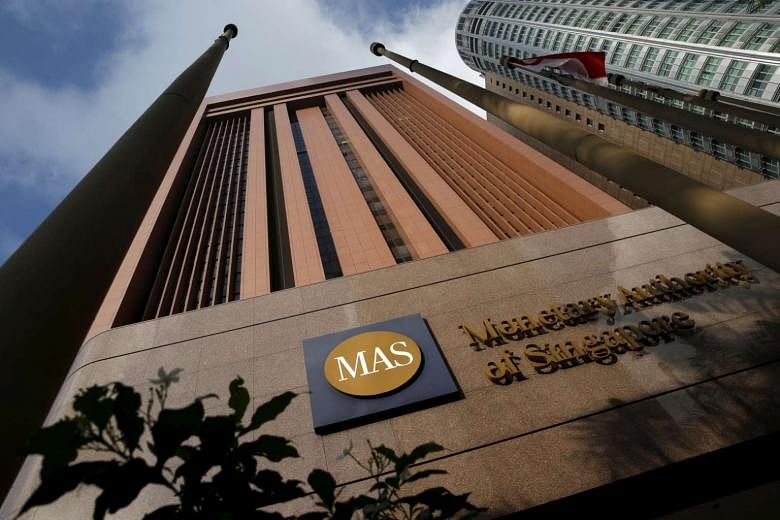SINGAPORE - Adjustments made to property cooling measures earlier this year do not signal the start of an unwinding of those measures, Monetary Authority of Singapore (MAS) managing director Ravi Menon said on Thursday (June 29).
Those changes were made for very specific reasons, and it is not time yet to ease cooling measures, he added, in remarks made at the release of the MAS Annual Report.
In March, the Government shortened the holding period for the Sellers Stamp Duty (SSD) and the rates were lowered, because speculative flipping of properties had declined significantly, he said.
The Government also tweaked home loan curbs by excluding mortgage equity withdrawal loans with loan-to-value ratios of 50 per cent or less from the total debt servicing ratio framework, to give home owners greater flexibility to monetise their properties for retirement needs.
However, Mr Menon said, the remaining cooling measures are still necessary as underlying demand for private residential properties continues to be firm amidst an environment of persistently low interest rates.
Furthermore, investors continue to search for yield and safety in property markets around the world, he noted.
"Regional property markets have been buoyant and their respective authorities have, in the past six months, introduced further property cooling measures," he said.
"Easing the measures now would send a wrong signal."
Over the medium term, property prices should be aligned with broader income trends in the economy, he added.
Mr Menon's comments come as the MAS caps a robust year.
After contribution to the Consolidated Fund, the MAS made a net profit of S$24.3 billion in the financial year.
This is a record profit but Mr Menon noted that the MAS' profit and loss outcomes are subject to sharp swings and do not reflect its underlying investment approach, which is conservative and emphasises steady, long-term returns.
The MAS' underlying foreign investment gains has remained fairly stable at S$10 billion to S$12 billion on average over the past few financial years.
Mr Menon noted, too, that the global economy is in a better shape than it has been in a long while.
Growth is more broad-based, across both advanced and emerging economies, global trade is recovering on the back of increased manufacturing activity and bottoming of commodity prices.
The Singapore economy is forecast to grow by 1 to 3 per cent this year, he said, with a strong likelihood that it would be higher than the 2 per cent registered last year.
The MAS chief said the global economy should be able to adjust to rising US interest rates - itself a response to strengthening economic activity - but risks remain especially if rates rise faster than expected.
He noted that debt levels in emerging market economies are much higher than they were before the financial crisis and this is a source of potential vulnerability as interest rates rise.
On the policy front, Mr Menon noted that the MAS took tough action in the past year on banks and individuals found to have committed wrongdoing or lapses related to the 1MDB scandal.
This included closing Falcon Private Bank for serious failures in anti-money laundering control sand improper conduct, fining eight banks for 1MDB-related breaches and issuing prohibition orders on several individuals.
"Last year, I said that the findings on the 1MDB-related transactions that flowed through here had made a dent in our reputation as a clean and trusted financial centre," he said.
"I believe we have begun the process of restoring that reputation. We have taken tough and unprecedented enforcement actions and sent an unequivocal message that the MAS will not tolerate the criminal abuse of Singapore's financial system."
Last month the MAS announced the completion of a two-year-long review of banks here.
"The MAS has intensified its supervision of financial institutions that have higher inherent money laundering risks or control areas found wanting in previous inspections," Mr Menon added.
While upholding Singapore's reputation with its no-nonsense approach to regulation, Mr Menon said the MAS also seeks to be progressive and proactive in developing Singapore's financial sector.
He noted that the MAS has been working with the industry to deepen the financing ecosystem for local and regional companies in three ways.
First, it is working to strengthen the venture capital and private equity financing ecosystem to serve Asian growth companies, for example, by simplifying the regulatory framework for venture capital firms to operate here.
Second, it is working to strengthen Singapore's value proposition for Asian companies to issue bonds, for example, by introducing the Asian Bond Grant scheme earlier this year.
It is also introducing a Singdollar Credit Rating Grant soon, to encourage issuers to be rated and to nurture a healthy credit rating culture in the Singdollar bond market.
Third, Mr Menon said, the MAS is working to expand the industry's capacity to finance Asian companies' international trade activities.
One innovation to this end is the Capital and Credit Risk Manager, an electronic trading platform for trade finance assets launched last month with 16 global financial institutions participating.
The financial sector saw a net increase of 2,800 jobs in 2016, despite the slowdown in financial sector growth to 0.7 per cent from 5.3 per cent in 2015, Mr Menon said.
Digitisation and automation are gathering pace and many global financial institutions have been downsizing and restructuring their operations, he noted.
However, most retrenched finance professionals have been able to find alternative employment, within the industry or in other sectors.
The MAS is working with financial institutions to identify early on jobs that may be at risk in future, and work with such workers to gain new skills proactively.
"Jobs and skills have moved to front and centre of the MAS' financial sector development agenda," Mr Menon said.
"Working with our industry, we are resolved to help our workforce seize the opportunities that a thriving financial centre at the heart of a dynamic Asia presents."


